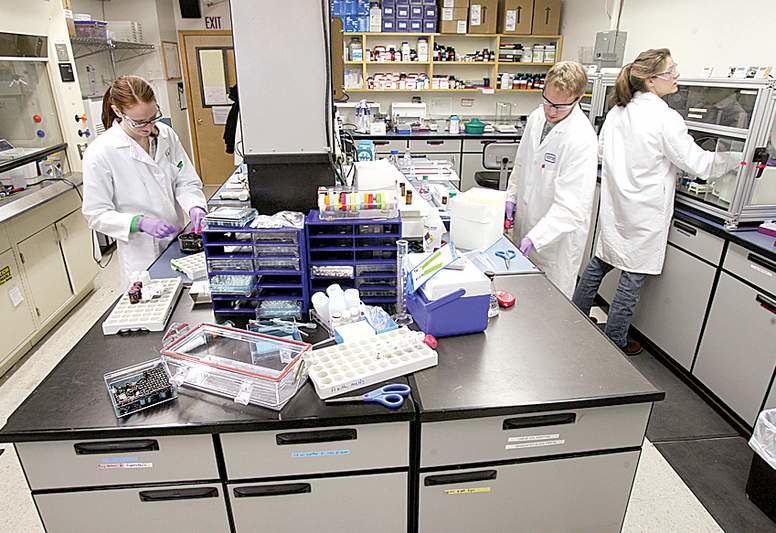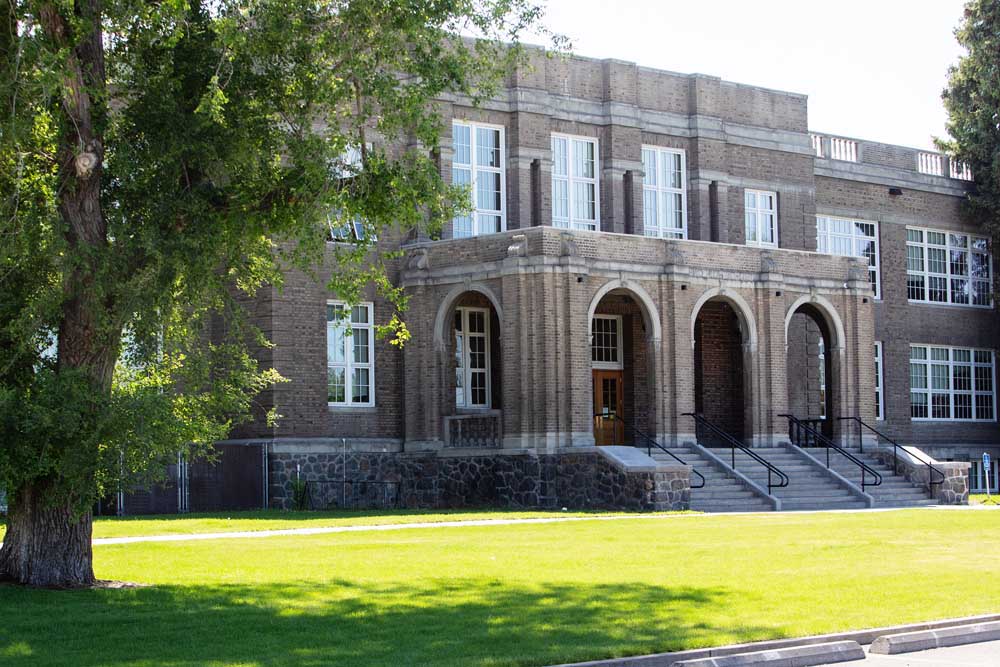Bend Research ‘a key player’ in state biotech
Published 4:00 am Monday, February 8, 2010

- Research chemist Brittany Demainew, left, and interns Travis Ringo and Moriah Zimmerman work in Lab 10 at Bend Research.
Central Oregon is home to a number of biotechnology, information technology and clean-energy companies, all of which comprise a growing portion of the region’s economy — and one civic leaders would like to expand.
Founded in 1975, Bend Research Inc. is one of the High Desert’s original technology companies, and company President and CEO Rod Ray has worked there practically since its inception.
With an emphasis on applied research, the company got its start solving chemical engineering problems for different industrial clients. Some of their breakthroughs led to spinoffs, including Bend’s Suterra LLC, which manufactures pheromone-based insect-control products.
Bend Research’s work eventually led to an exclusive 10-year partnership with the pharmaceutical giant Pfizer. Bend Research helped Pfizer surmount a variety of technical hurdles, from developing ways for insoluble drugs to be absorbed by the body to engineering manufacturing methods.
“They are probably one of the top five companies in the biospace in Oregon,” John Tortorici, executive director of the Portland-based Oregon Bioscience Association, said of Bend Research. “They have a terrific reputation — I’m sure it’s international, but I know it’s national — for doing quality work, and they are a key player to the bioscience community in Oregon.”
Pfizer recently consolidated its research operations and downsized its relationship with Bend Research, Ray said. As a result, Ray has stepped up his company’s business development efforts, and is marketing its expertise in drug delivery and drug formulation to the rest of the pharmaceutical industry.
The industry appears to be listening. In November, Bend Research announced a new collaboration with Vertex Pharmaceuticals Inc., a global biotechnology company headquartered in Cambridge, Mass.
“Our aggressive business development efforts have resulted in a good new revenue flow and lots of new work,” Ray said.
Specialists
Ray said his company is retaining its focus on pharmaceutical companies, primarily due to the expertise it gathered from its work with Pfizer, as well as technology Bend Research developed in collaboration with Pfizer that it is allowing Bend Research to continue to use.
Ray also credits his company’s motivated work force for a reputation for solving complex problems.
“We have a very high work ethic here,” said Ray, who has a Ph.D. in chemical engineering. “And the other thing we say is no one whines here, people just get it done. It’s kind of a cowboy thing.”
The company has 142 employees, 36 of whom have advanced degrees, including 19 doctorate degrees.
Ray credits his workers’ successes in the lab as key to the company’s ability to transition from an exclusive relationship with Pfizer to new opportunities. Ray said he felt some trepidation about marketing his company again as its partnership with Pfizer wound down. But so far, work has not been hard to find, he said.
As a result, Ray is preparing to hire, including chemists and chemical engineers.
“We’re so specialized and good at what we do because Pfizer paid us to get good at it, and we turned out to be … specialists,” Ray said.
Recruiting the talent
Although the company has a reputation for applied research, finding technical-minded individuals willing to work so far from established research centers in the country’s metropolitan areas can be challenging, Ray said.
Oftentimes, people who join Bend Research do so to take advantage of Central Oregon’s recreational opportunities or because they like the region’s rural and family-friendly setting, he said.
As a result, Ray often recruits from universities set in communities that have a rural culture or lots of outdoor recreation, such as Oregon State University, Montana State University, Washington State University and Ray’s alma mater, the University of Colorado at Boulder.
Ray said it’s sometimes tough to recruit engineers and chemists from metropolitan areas because of the lack of a four-year research university and the region’s relatively young biotech sector.
In other words, if a chemist loses his job at Bend Research, there are few other places locally to find work, Ray said.
Education
At the same time, Ray is an earnest supporter of Central Oregon Community College and Oregon State University-Cascades Campus and believes it’s more realistic in the short term to strengthen those two schools.
Though the region’s education system is not as strong as he’d like, Ray believes Central Oregon can and will grow its tech sector. But clear policy changes in Salem are key to that occurring, he said.
“If this state really wants to get serious about bringing in high-tech companies, they have to change the (business) tax structure. It’s too punitive right now,” Ray said. “The other thing (is) we have to do something about our investment in higher education, not just in Central Oregon but statewide. What keeps high tech from coming to Oregon is its tax structure and a lack of support from the state for higher education.”
For the region’s civic leaders, a burgeoning tech sector provides ample benefits: clean industry, high-paying jobs and increased investment. Ray said his company has an annual payroll of $11 million, and he estimates the company pumps another $9 million into the local economy through the purchase of local goods and services.
Ray said that $20 million economic impact is the result of investments from companies outside the region. The sort of tech companies that can attract investment dollars from elsewhere can change a community, and for the better, he said.
Said Tortorici: “It’s a great company, and we’re lucky to have them in Oregon. And you guys are lucky to have them in Bend.”






